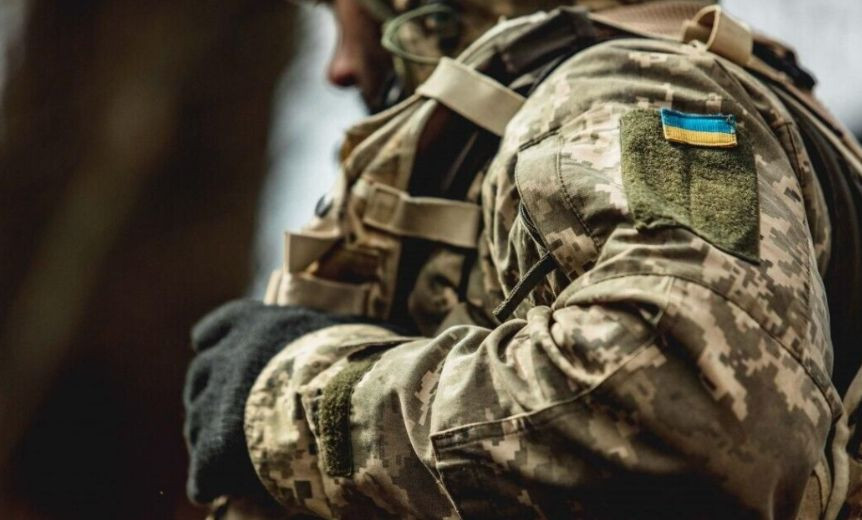“Statements by Mike Waltz, Donald Trump’s future national security adviser, reveal several key areas of possible US policy regarding the war in Ukraine, negotiations with Russia and ending hostilities through diplomacy. Analyzing theses expressed in an interview with ABC News, one can draw conclusions about the approach of the Trump administration to the Ukrainian-Russian issue, including geopolitical, economic and military aspects. What happened”, — write on: ua.news
Statements by Mike Waltz, Donald Trump’s future national security adviser, reveal several key areas of possible US policy regarding the war in Ukraine, negotiations with Russia and ending hostilities through diplomacy. Analyzing theses expressed in an interview with ABC News, one can draw conclusions about the Trump administration’s approach to the Ukrainian-Russian issue, including geopolitical, economic and military aspects.
What became clear after the statements of Mike Volz? What policies will the United States pursue in the era of Trump? What do Ukrainian experts think about it? UA.News political columnist Nikita Trachuk understood this in the question.
Negotiations as the main policy tool
In the interview, Volz once again emphasized the need for dialogue with Russia as an important component of the settlement of the war. Which is generally logical, because it is impossible to end the war with the Russian Federation without the participation of the Russian Federation itself.
From the words of Trump’s adviser, it is clear that the new American administration is ready for active diplomatic initiatives, including direct contacts with the Kremlin. This resonates with Trump’s approach to international conflicts, which is based on pragmatism and the search for “beneficial agreements” – the same famous Trumpian “make a deal”.

However, this approach has potentially negative consequences. For example, the weakening of Ukraine’s position. After all, the statement about the impossibility of “eliminating all Russian soldiers from every centimeter of Ukrainian territory” actually recognizes the partial capitulation of Ukrainian interests, including the issue of Crimea. At least this is how it will be perceived by a part of Ukrainian society.
In addition, such diplomacy can be aimed at achieving only a temporary compromise. This raises the risk of freezing the war on the condition that part of the occupied territories remains under Russian control. A similar scenario was observed in 2014 during the conclusion of the Minsk agreements. Although they were intended to end hostilities, the lack of political will to implement them turned the agreements into a tool for a protracted war that was temporarily frozen and then eventually escalated into a full-scale invasion.
Criticism of the military potential of Ukraine
In Volz’s statement, there is a remark about the lack of mobilization resources in Ukraine. Trump’s adviser emphasizes the need to increase the number of military personnel by lowering the age of conscription into the Armed Forces. It is interesting how, in this context, the rhetoric of the members of the new administration coincides with the previous US government. After all, Biden has also been repeatedly urged to lower the mobilization age.
However, what happened then, that now Ukraine refused to go to the draft of 18-year-olds. Such an approach could lead to escalation, as an increase in the size of the army is not a guarantee of stabilization of the front, as Volz says. And in terms of numbers, this social penalty is almost the smallest in our country. But the loss of this generation in the war will lead to even greater demographic problems than we have now.
In addition, Trump’s adviser hints that Kyiv’s support from the US will depend on its readiness to “fully fight for democracy.” This could mean a reduction in military and financial aid in the future if Ukraine does not demonstrate an appropriate level of mobilization.

Reality and compromises in territorial issues
Volz directly states that Crimea is, in fact, recognized by the Trump administration as part of Russia. An important point: it is recognized de facto, not de jure. That is, not officially at the international level, but at the level of acceptance of the real situation on the ground. This confirms a pragmatic approach aimed at a quick end to the confrontation with the Russian Federation, even at the cost of Ukrainian territories.
Acknowledging Ukraine’s territorial losses can indeed become part of a compromise to establish peace. But such an approach risks creating a precedent for future Russian aggression. The recognition of Crimea and other occupied territories as part of the Russian Federation contradicts international norms and nullifies the system of international law.

A banal and well-known, but none the less relevant, example is the policy of appeasement of the aggressor, reminiscent of the Munich Agreement of 1938, when Western countries made concessions to Germany. In this way, they hoped to avoid a major war in Europe. However, this only strengthened the aggressive ambitions of the Nazi leadership, and everyone knows what happened next.
Volz’s statements also raise questions about the impact of the war in Ukraine on global security. In particular, Trump’s adviser spoke about the risks of conflict escalation in other regions.
Thus, the mention of North and South Korea emphasizes the multi-vector nature of the challenges for America. Escalation in Ukraine may divert resources from other regions, for example, from the Asia-Pacific region. And the USA under Trump, who is already targeting Canada, Greenland and the Panama Canal, clearly does not need it. Perhaps the new American administration is inclined to believe that if Washington concentrates too much on the Ukrainian problem, it will weaken its influence in other critical points on the world map. At least, this is the feeling when analyzing the statements of Mike Volz.

Opinions of experts
Political scientist, director of the Institute of World Politics Evgeny Magda believes that Volz in his interview indicated not only the attitude towards Ukraine. As Donald Trump’s incoming national security adviser, he outlined a wide range of challenges the new US administration will face after January 20, when Trump officially takes office.
“The issue of lowering the conscription age in Ukraine has been raised by the Biden administration until now, as well as by other Western politicians. It’s not a big secret. It’s just that this issue is sensitive for Ukraine, and it would be at least naive to expect an easy solution. But we must understand that the Western allies in the current paradigm can take a simple position: that they will be ready to either increase support or maintain support at the current level – although this level is not without problems – only if Ukraine takes unpopular decisions. , – says Magda.
The political scientist recalled that large-scale hostilities in our country have been going on for more than 1,000 days. At the same time, the transition of the economy to military rails has not yet taken place. While the same aggressor state has already done it.
“That is, we are talking about the fact that there is an existential war, but in reality it is a big enough problem at the moment. And, on it is a pity, it is worth understanding that Volz told our country a tale about lost time. About the fact that many decisions had to be made earlier. They were not adopted, there is no point in complaining about it now, because it is too late to adopt them. And the decisions that are needed at the moment, they lie on the surface of complex decisions that will not have a positive effect on the rating of any government. This is completely understandable.
Therefore, it is not difficult to predict that the Ukrainian leadership will face various challenges at the most dire times and will be forced to look for opportunities to strengthen its positions… But we have no other way out at the moment. Yes, the West is preparing to start a big game with Putin, but we have to understand that there will be no clearly defined winner in this big game,” Magda said.
As a summary, the expert said that the Russian dictator is not going to sit down at the negotiating table with Zelensky. He will do it exclusively with Trump.
“Therefore, it is important for us that Volodymyr Zelenskyy’s meeting with Donald Trump takes place earlier than that of the elected US president with Putin,” Yevhen Magda summarized.
Political scientist, director of the Ukrainian Institute of Politics Ruslan Bortnik believes that through Mike Volz, Kyiv was actually given the conditions on which the American side is ready to start the peace process. At most: these conditions are largely ultimate.
“What is Waltz telling us? In order to start negotiations, Ukraine itself must stop the advance of the Russians. And in order to stop the advance of the Russians, Ukraine must carry out a full-fledged, total mobilization, including 18-year-olds… Otherwise, there is no point in the Russian Federation going to negotiations now, because it is advancing and moving forward. If you, Ukraine, cannot stop the offensive of the Russians and do not want to mobilize 18-year-olds, then you must go for an immediate ceasefire. Exactly what was already offered to Trump before. This is what Volz is hinting at,” explains Bortnik.
The expert explains the course of Volz’s thoughts: they say, you in Ukraine cannot demand anything from us if you do not have your own resources to continue successful military operations. Then you should “shut up” and listen to us Americans. This is how Trump’s adviser’s statements should be interpreted.
“Well, there is also a lot of self-promotion. That Zelensky allegedly agreed to negotiations, that Putin also agreed. That here we are a new administration and we already have achievements: everyone agrees to negotiations. This is how these statements sound. But if Ukraine wants its position to be taken into account, if it wants to continue receiving American aid, it must mobilize. The one that is needed, not partial or incomplete. That is, to mobilize young people,” Ruslan Bortnik summarizes Volts’ statements.
Conclusions and recommendations
In summary, Mike Waltz’s statements reflect a difficult balance between the US desire to end the war and avoid escalation. However, the implementation of American plans may create significant challenges for Ukraine and the entire international security system.
Compromise models for America are obvious: they are ready to cede part of Ukrainian territories for the sake of peace. The question is, what is Ukraine and, especially, Moscow ready for the end of the war? Will Putin at least make some concessions? The success of future negotiations between the American president and his Russian counterpart will depend on this.
Nikita Trachuk
